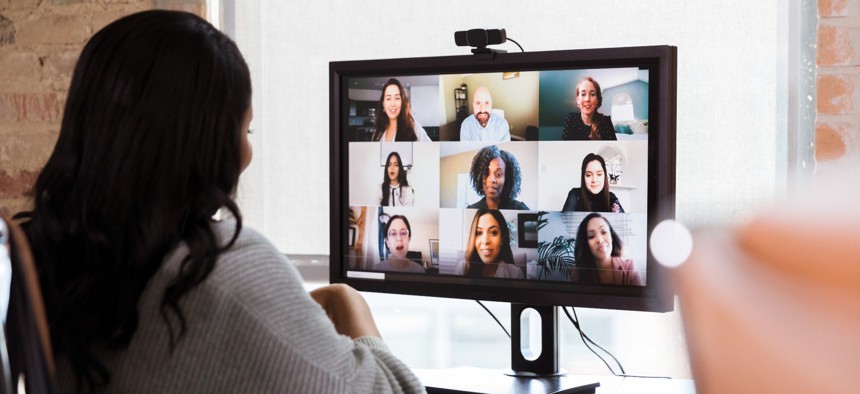EEOC will keep online mediation around post-Covid

Getty Images
The EEOC had to offer mediation sessions online because of the pandemic and the agency wants to keep the virtual option for the future.
The Equal Employment Opportunity Commission, the federal agency that enforces anti-discrimination laws in the workplace, released new studies last week that it says show "overwhelming satisfaction" with the agency's pivot to online services during the pandemic.
The studies focused on the EEOC's mediation program, an alternative to investigation and litigation processes to help parties reach a resolution for a discrimination charge.
Because of the pandemic, the agency had to shift online in 2020. The agency says that it will continue to offer online mediation even after the risk of in-person meetings posed by the pandemic ends.
"While our pivot to online mediation was necessitated by the pandemic, online mediation, like our in-person mediation program, has proven to be very popular and effective," said EEOC Chair Charlotte A. Burrows in a statement.
"The EEOC's mediation program has received consistently high marks from participants since its inception over 20 years ago and the agency's effective adoption of virtual mediation during the pandemic is yet another success of the program. The EEOC will continue to offer virtual mediation as an option for those able to participate virtually even after we resume in-person service to the public," she continued.
The agency released two new studies, both dated Feb. 18, 2022, on June 1. One centers on people participating in mediation, the other on those doing the mediating. These are part of an ongoing line of studies contracted by the agency and done by academics.
The first found that almost 70% of the approximately 1,100 surveyed would prefer online mediation to in-person in the future, even if they had the option of in-person. Ninety-two percent of those charging employers of discrimination and 98% of employers say that they'd use online mediation again, according to the same study, which cites benefits to being virtual like convenience and cost savings.
The second study of mediators reported that "from the perspectives of the overwhelming majority of mediators surveyed, the use of [online dispute resolution] is as, or more, effective than [in-person mediation]." Survey respondents didn't report that case settlement was negatively affected by being done virtually, and found that online dispute resolution is also more flexible than in-person programs.
The study also noted that "access to justice is enhanced" by the virtual option because of increased access, increased employer participation and the physical distance between employers and the charging party.
Neither study cited technology as a major problem for online mediation, although the first study did note that where issues were reported, they were more likely to occur with the charging party, not the employer. The second also asked about "Zoom fatigue," or exhaustion associated with video conferencing, but found only "little mediator observation of 'Zoom fatigue.'"
This comes from the EEOC as the agency has faced accusations of misconduct from its union, which last month filed an unfair labor practice complaint with the Federal Labor Relations Authority against management, asserting that the agency had conducted only surface-level bargaining before moving forward with its plan to bring employees back to physical offices. Agency officials said at the time that the EEOC had been bargaining in good faith, Government Executive reported. The union has been pushing for expanded telework flexibilities.






